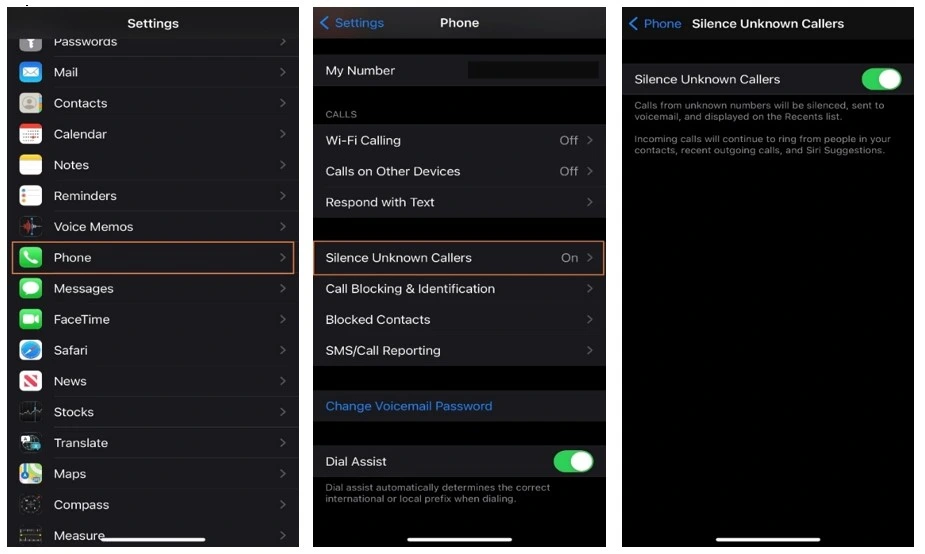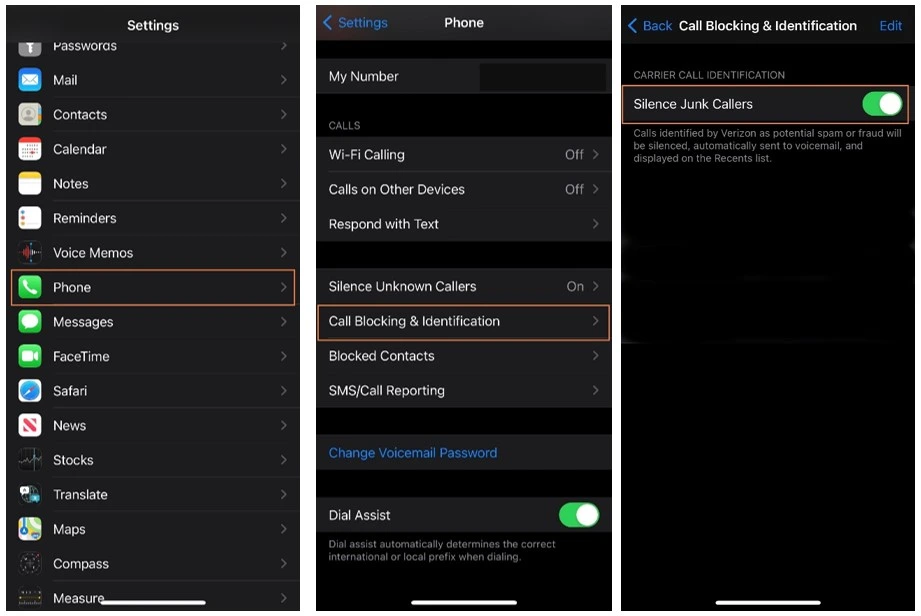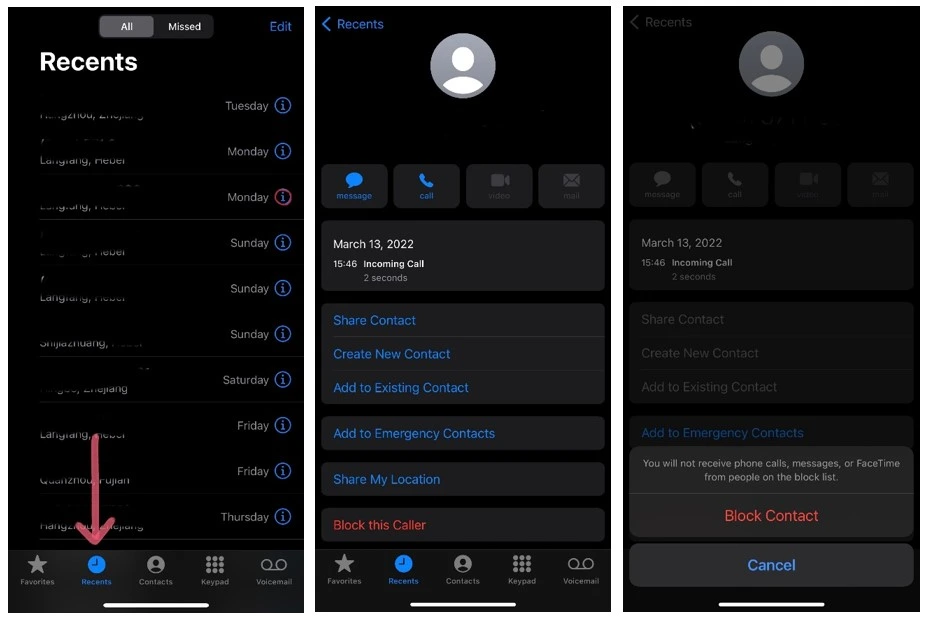Are you fed up with robocalls? If you own a phone, chances are you’ve experienced the irritation of receiving these unsolicited calls. Some might claim to be the IRS threatening legal action unless you purchase a stack of gift cards immediately, Amazon asking about a transaction you never made, or Marriott tempting you with a free trip (though, it’s essential to note these calls aren’t actually from these companies). When I say “you,” I mean nearly everyone in the United States who owns a phone. In 2022 alone, Americans were bombarded with over 50.3 billion robocalls, with scam and spam calls constituting around 41% of the total volume. Fast forward to August 2023, and the tally has already hit 5.46 billion, averaging almost 17 spam calls per person daily. Monthly, it amounts to about 4 billion robocalls, as estimated by private analyses. Just last October, the country received a staggering 4.82 billion robocalls, which translates to nearly 17 spam calls per individual. It’s time to take back control. This guide unveils effective strategies and tools to stop robocalls and put an end to this incessant invasion of our privacy and restore peace to our phones.
What Are Robocalls? Are They Legal?
For years, robocalls have been considered as a nuisance, which is phoned automatically from a computer, provides a prerecorded message, and are intended to elicit engagement from the recipient – either through voice or keypad input or transfer to an agent or representative. Or put it simply, “If you answer the phone and hear a recorded message instead of a live person, it’s a robocall. If you’re getting a lot of robocalls trying to sell you something, odds are the calls are illegal”, according to the definition from the Federal Trade Commission Consumer Advice.
Are Robocalls Getting Rampant?
Unfortunately, robocalls are getting more and more rampant and out of control in today’s world. In 2021, Americans have gotten over 50 billion robocalls, an about 10% increase over 2020 with 45.9 billion robocalls and a large part of the robocalls are scams, which attempt to trick you into paying money or revealing personal information. Therefore, the robocall problem is dangerous more than just annoying.
In the current age of technical marvels, how can this possibly be a big problem? Phones have evolved into miniature computers that are more powerful than the ones NASA used to land astronauts on the moon. Why aren’t they able to put a stop to unwanted phone calls? How difficult could it possibly be?
Actually, it turns out to be quite difficult as those technical advancements are also applicable to phones. One of the unforeseen results is the annoying robocall.
Why Stop Robocalls?
Why is it extremely important to protect you from the daily unwanted robocalls and even the robocall scams on your iPhone? Here come the reasons as the followings:
- Most robocalls are long-planned scams that will imperil your Information Security and Property Security.
- Stopping robocalls can save you time and sometimes money as well.
- You have complete control over what calls you receive and don’t receive.
- You will have a good time on a weekend without disturbing robocalls.
All in all, the robocall can always influence your life and maybe bring a large loss. That’s why it seems more important and urgent to take matters into your own hands for solving the robocall problem. More specifically, learn to get rid of the robocalls on your phone by yourself.
How to Get Rid of Robocalls on iPhone Step by Step?
Here is a funny fact: a lot of people are disturbed by robocalls and think whether there is a way to block these robocalls while they forget a very simple but effective way that can just be done on the phone. Let’s find these good options together.
Option#1: Silence Unknown Callers on iPhone
All unknown calls that iOS couldn’t find in your contacts list can be silenced by Apple. Check and update your contacts before setting this mode, and you’ll find it much easier to ignore robocalls! The specific steps are as follows:
- On your iPhone, open the Settings app.
- To get started, scroll down and select Phone.
- You’ll find a lot of choices for managing calls under the Calls section. To begin, select Silence Unknown Callers.
- Make sure your iPhone’s Silence Unknown Callers feature is turned on.

In fact, this feature supports the FCC’s new STIR (Secure Telephony Identity Revisited) and SHAKEN (Secure Handling of Asserted Information Using Tokens) standards, which can verify the call source and phone number. However, make sure you don’t miss important calls from folks who aren’t on your contact list. Always keep an eye on your voicemail!
Option#2: Silence Junk Callers
With iOS 14, Apple included a new feature called Silence Junk Callers, which uses your carrier’s own spam-spotting capabilities. But it’s not available for every carrier. Here’s how to see if it’s enabled or not:
- On your iPhone, go to the Settings app.
- Select Phone from the drop-down menu.
- Select Call Blocking & Identification from the Calls section by scrolling down.
- Make sure that Silence Junk Callers is turned on if it’s available.

Option#3: Block individual callers
It’s simple to block specific phone numbers on your iPhone. However, it is possible that it will not address the robocall issue. Scammers are aware of the block feature and use different numbers each time the phone gets around it. But who knows if this operation will work to block robocalls in a long run? Here comes how to operate:
- Open the Phone app on your iPhone.
- At the bottom of the page, tap Recents.
- Then tap the Information icon which looks like an “i” within a circle next to the unknown phone number.
- Scroll down to the Block This Caller on the following screen.
- Finally, tap the Block Contact.

By the way, you can review the numbers you’ve blocked at any time by going to Phone > Blocked Contacts in Settings, where you can look for any mistakes or double-check whether you’ve blocked the correct number.
Option#4: Dial #662# (T-Mobile Users).
If you’re a T-Mobile customer, dialing #662# on your phone is beneficial to stop scam calls. It’s extremely simple to avoid scam calls but it only works for T-Mobile users.
Since you might have tried all the solutions that have been mentioned above to block unwanted calls on your iPhone, it is worth noting that it may block ALL incoming calls that are not in your contacts, which means that you could miss some important phone calls from your doctor, a potential employer, school calls, delivery person and so on as their numbers are not saved. Therefore, remember to add all the important numbers to your contracts beforehand.
Why Can’t Your iPhone Automatically Block Robocalls?
Maybe you will have the doubt why can’t your iPhone block unwanted robocalls by default. Here are some reasons:
- The robocalls are so smart to escape the block of your iPhone. They’re now buying databases of real phone numbers to trick spam-blocking software into enabling the calls to go through.
- Spoofing caller ID is a difficult challenge to tackle. Because spammers utilize caller ID spoofing across VoIP servers all over the world, determining the true origin of a fake call is very difficult.
- While it may appear simple, the telephone network is a complex system with numerous suppliers and networks. The problem’s intricacy makes it hard for Apple to tackle it on its own.
- Building effective spoof-fighting technology would be a massive and expensive project for Apple, and they believe it isn’t worth the investment, not to mention there are so many call-blocking apps that arouse people’s interests and attention in society nowadays.
Are There Any Other Tips to Stop Robocalls on iPhone?
Definitely, yes!
There are also some other tips and tricks you can use to stop robocalls on your iPhone as the deluge isn’t inevitable.
1. Mount your first line of defense
📞 Just hang up on the robocalls immediately
Why don’t you just answer the phone and then hang up? By responding to a robocall, you may be putting your number in line for additional harassment because it signals to scammers that you are willing to engage. As a result, your phone number is more likely to be passed on to a human caller who may attempt to elicit information from you or defraud you of your hard-earned money.
👀 Check out any alleged “issues” for yourself
If you receive a call from someone pretending to be from a government agency or a company you do business with, don’t believe it. Because someone knowing your address, or the names of your family members do not indicate they are trustworthy. Hang up and look up the company’s phone number (online or on a bill) to discover whether the issue exists.
🤐 Do not say anything if you do happen to answer a robocall by accident
Scammers may record your voice and use it to authorize certain things (purchase, new credit card, etc.), so you should attempt to avoid answering any questions, especially responding with “yes”.
⚠️ Do not be tricked by a number that appears to be the same as the one you know
As previously stated, these scammers may utilize call spoofing to disguise their location as a number similar to your own.
2. Join the Federal Trade Commission’s Do Not Call Registry (and report offenders)
While this may not totally eliminate robocalls, there’s no harm in registering the FTC’s Do Not Call list, which gives you a choice about whether to receive telemarketing calls.
While robocall scammers are unlikely to obey laws regarding who they may and cannot reach, the Do Not Call Registry will keep legitimate telemarketers away from you. You can also report nuisance calls to the Federal Trade Commission (FTC), who will use this data in their bigger campaign against robocalls, even though they won’t be able to follow up on every reported call.
Oh, wait! Here is the official website for joining the Do Not Call Registry and reporting offenders.
3. Check with your carrier’s anti-robocall tools
In fact, robocalls are already identified, filtered, and prevented by major carriers. Twelve major U.S. phone carriers must adopt new technologies (STIR and SHAKEN) in response to the FCC‘s new rule. These tools are intended to detect robocaller spoofing methods that make phone numbers appear to be local. Here are the four big US carriers’ free or paid services to help block robocalls.
- AT&T
AT&T Call Protect, a free iOS app, is available to subscribers. In addition to blocking spam and fraud calls, the free edition includes annoying warning flags and a personal block list, as well as the ability to ban all unknown callers. And the Call Protect Plus costs $4 per line per month and includes features such as caller ID for unknown callers, reverse phone lookup, and custom call controls.
- T-Mobile
T-Mobile Scam Shield is a free service that combines numerous measures to protect you from robocalls and the leaking of your personal information. To activate Scam Block, dial #662# from your phone or go to your phone’s app store and download the free Scam Shield app. For $4 per month, T-Mobile also offers a Name ID service, which recognizes and delivers caller information such as name, location, and kind of organization.
- Verizon
Verizon offers a free version of Call Filter to qualifying consumers, which detects spam and bans high-risk calls. Besides, Verizon also offers Call Filter Plus, a more powerful paid anti-robocall technology that may stop unsolicited calls. For up to two lines, it costs $3 per month per line. For three or more lines, it’s $8 each month. However, in order to activate Call Filter Plus, you should make sure the Call Filter app is preloaded on your Verizon phones. And you can get it from the app store if not installed.
- Sprint
T-Mobile has made Sprint Call Screener available for free. Sprint customers will eventually be able to use the full Scam Shield product suite after migrating to T-system. You can download and use Call Screener Pro without paying the $3 monthly cost until then. The service detects and labels suspected spam calls, as well as allows you to report numbers as spam.
4. Use a third-party call-blocking app
There are many third-party call-blocking apps available for iPhone if your carrier doesn’t offer a robocall-cutting software or service, or if it does but it’s too expensive. However, keep in mind that some of the anti-blocking apps in the App Store require access to your contact list, which can be a privacy concern. So, be sure to make a thorough research on the apps first as many have been found to collect and sell users’ information. Here is an app on offer that allows you to block robocalls without compromising your privacy.
RealCall is a helpful third-party app that blocks spam calls and displays caller ID, which boasts top-notch blocking accuracy thanks to its enormous and ever-evolving database and AI-based modeling.
Every user of RealCall contributes as an extra layer of safety and increases the shield against scammers while enjoying protection and peace. Realcall’s AI becomes better and more accurate for everyone after being trained by spammers’ calling patterns and possible movements.
Bottom Line
- Nowadays, robocalls are rampant and it’s high time to take some measures to solve the problem. More specifically, take matters into your hands to learn to get rid of robocalls on your iPhone.
- There are some options that you can adopt on your iPhone to effectively stop robocalls, such as turning on the Silence Unknown Callers, Silence Junk Callers, or blocking individual callers.
- Since sometimes your iPhone cannot block robocalls by default, some other tips can be taken into consideration, including mounting your first line of defense, joining the FTC’s Do Not Call Registry, checking with your carrier’s anti-robocall tools, and using a third-party app like RealCall.
References:
- https://tnsi.com/tns-robocall-report-americans-deluged-with-80-billion-unwanted-calls-over-past-year-but-they-arent-coming-from-tier-1-carriers/
- https://consumer.ftc.gov/articles/robocalls
- https://www.donotcall.gov/
- https://apps.apple.com/us/app/at-t-call-protect/id1181632589
- https://apps.apple.com/app/t-mobile-name-id/id1367276365
- https://www.verizon.com/solutions-and-services/call-filter/
- https://apps.apple.com/us/app/sprint-premium-caller-id/id1229687123

